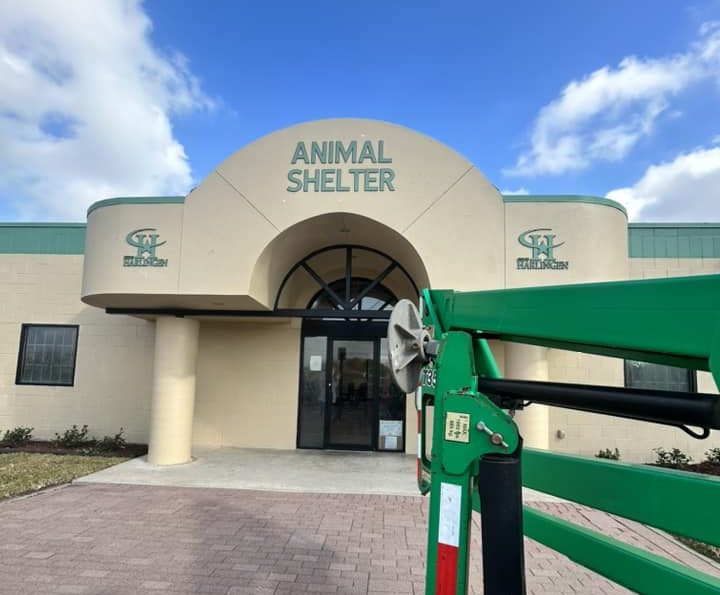|
Only have a minute? Listen instead
Getting your Trinity Audio player ready...
|

HARLINGEN — The city’s new animal shelter is launching a program aimed at controlling Harlingen’s stray dogs and cats.
At City Hall, officials are tapping the Harlingen Community Improvement Board for $200,000 aimed at funding a program offering spay and neutering services for sheltered dogs and cats which residents pick for adoption.
“Our goal behind the animal shelter is to ensure that all pets are spayed or neutered, contributing to the health and well-being of the animals in our community,” Mayor Norma Sepulveda said Tuesday in a statement. “We are now able to provide these services for every pet in our care at no cost to Harlingen citizens. This is a critical step toward responsible pet ownership and population control.”
Meanwhile, shelter volunteers are trapping stray cats before taking them to clinics offering spay and neutering services.
Now, officials are planning to request the Community Improvement Board, funded through a one-eighth-cent sales tax earmarked for quality-of-life projects, grant more money to allow residents to take their pets to clinics offering the services.
“We are committed to expanding this initiative and will soon return to the board to request an additional $200,000, which will allow us to extend spay and neuter services to families that need assistance in our community,” Sepulveda said.
About two years ago, Commissioner Rene Perez pushed for the program.
“The spay-neuter program is at the root of the issue,” he said in an interview. “The animal shelter is doing an amazing job for the city of Harlingen, concentrating on just the city of Harlingen, seeking Harlingen owners for Harlingen pets.”
As part of the new program, officials are contracting with Arroyo Veterinary Hospital to offer spay and neutering services for the animal shelter’s dogs and cats which residents pick out for adoption, Assistant City Manager Josh Ramirez said.
At City Hall, officials are considering contracting with a second veterinarian to help provide spay and neutering services, he said.
Before launching the new program, the shelter was charging residents varying fees to spay and neuter the dogs and cats they picked for adoption.
“Now they’ll have a greater chance of being adopted,” Ramirez said, pointing to the shelter’s 110 dogs and cats. “Most definitely, this will increase adoptions. We save as many animals as we can.”
At the shelter, officials are working to find homes for its dogs and cats.
”The shelter is currently in need of fosters for our Harlingen pets,” Sepulveda said. “We need the community’s support.”
Across much of the city, stray cats are out of control, Ramirez said.
“We have a huge problem with the overpopulation of cats,” he said. “There are pockets of the city that are overpopulated with cats to the point where they’re continually reproducing. In the core of the city — in areas where there’s more population — there’s more stray cats, and there’s no control.”
For two years, teams of volunteers have been searching out so-called stray cat “colonies” and setting traps to catch them before taking them to clinics offering spay and neutering services, Ramirez said.
Meanwhile, officials are closer to launching a project aimed at building a bigger animal shelter, Sepulveda said
“The city is in the final stages of securing a grant for the construction of a new animal shelter that will allow us to better serve Harlingen,” she said.
In January, city officials took over the animal shelter’s operations a month after terminating the Rio Grande Valley Humane Society’s $400,000 annual contract, claiming the “no-kill” agency breached its agreement when it refused to take in residents’ pets along with some animal control officers’ intake requests.
To jump-start the program, commissioners pulled $365,937 from the city’s general fund budget to foot the payroll for an 11-member staff running the shelter, with Shannon Harvill, the city’s environmental health director, overseeing the operation.
A month later, commissioners entered into a $1,248 monthly contract with veterinarian Robert Kellogg, who co-founded the Humane Society during his 40-year career.
Since then, commissioners have funded requests including the purchase of a $38,360 animal transport van and a $900 computer software program while hiring a second animal adoption coordinator at a salary of $40,771 with benefits.



